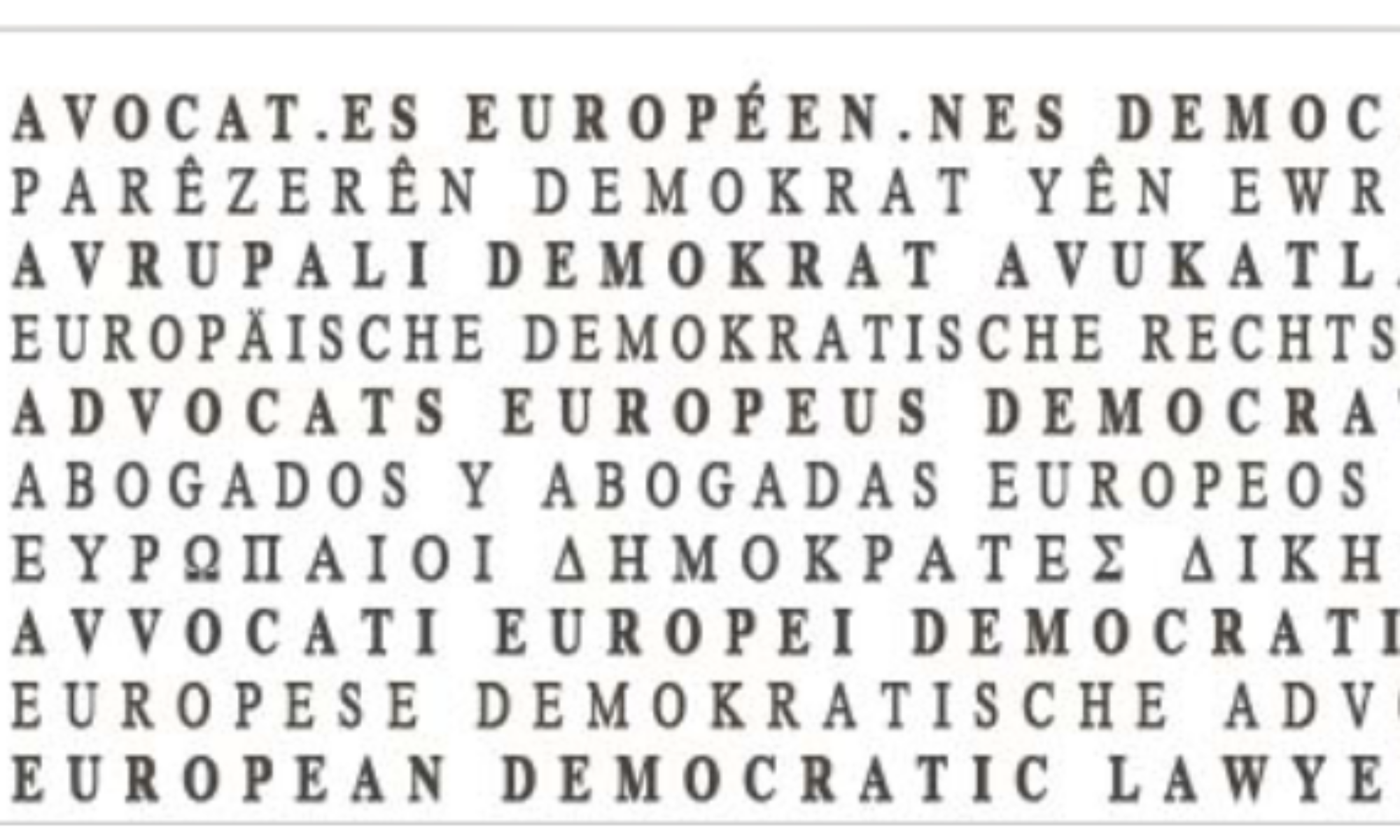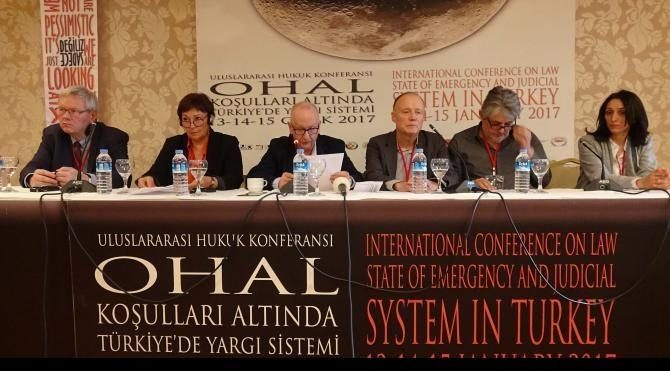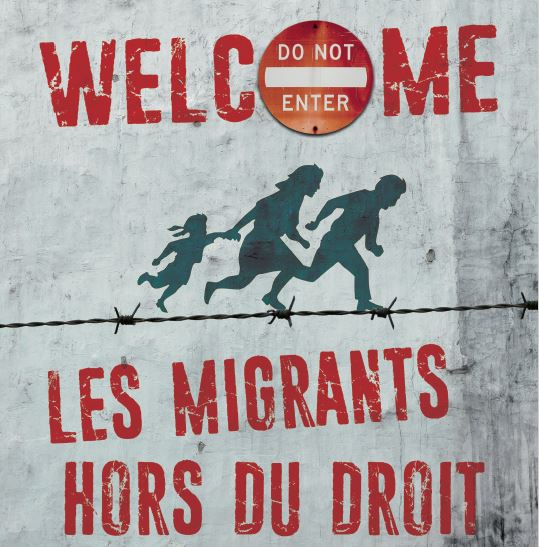We greet you as organizers of the conference entitled “State of Emergency and Judicial System in Turkey”.
This conference has historical significance, for the following reasons:.
● The conference is organized in Ankara, the capital of Turkey, in an environment dominated by the oppressive and coercive practices of the State of Emergency in Turkey.
● The conference brings together lawyers, judges and prosecutors. Together they are the foundations of judicial system. There is also a place for academics, who have crucial importance for the production of legal interpretation and knowledge; for journalists whose importance is undeniable in the distribution of information; and also for parliamentarians. All significant actors who can discuss the impacts of the State of Emergency on the judicial system in Turkey are present at this conference.
● The significance of this conference is not limited to Turkey . Today no one can claim that the political and economic problems of any location are unique to that location. Whether these problems concern the State of Emergency, martial law, anti-terror practices, deterioration of the judicial system, democracy, or access to justice. Regardless of their severity and location, they are all our shared problems. With this perspective, this conference is a conference where international experiences can be shared, discussed and put together in proposals for a solution.
● This conference is not just a transfer of information. This conference is a tool for analysis, diagnosis and plans for the future.
It is precisely for these reasons that this conference has a historical significance. The conference is held at a time when thousands of Turkish judges and prosecutors are in custody, and thousands who are still at liberty, are fettered by the fear of imprisonment , and in fact live in an environment where they have lost their independence. The slightest criticism is persecuted through the apparatuses of oppression and coercion.
The location and the date of the conference are not a coincidence, but a product of conscious choice. We hope that this conference is going to become a means of struggle for the peoples of Turkey and the world.
Turkey has already ceased to be a state governed by the rule of law. In a country where judges are deprived of the power of independent decision-making and where lawyers are not allowed practise their profession, it is not possible to talk about the principle of the rule of law nor about a real judicial system. This is because the judicial system is not the sum of procedural rules. The only valid diagnosis for a state of affairs in which the right to access to justice is restricted, or the right to a fair trial is blocked, is that lawlessness and arbitrary rule have replaced the rule of law.
An examination of the current Constitution of the Republic of Turkey and the State of Emergency Law shows us the following;
● The scope of the State of Emergency and the way it was declared are unlawful in themselves.
- The Decree Laws issued behind the curtain of the State of Emergency are unlawful.
- The dismissals and the privatizations of and the bans of the associations, newspapers and the TVs through the Decree Laws are unlawful.
● Any kind of parliamentary activity and all kinds of interventions carried out in the context of the Constitutional amendment during the State of Emergency period are unlawful.
In essence, there has not been a single step that can be described as lawful since the declaration of the State of Emergency in Turkey. On the contrary, under the cover of anti-terrorism, judges, lawyers, journalists, academics, and anyone who raises a voice in the face of the presidential regime under construction in Turkey today, are arrested, and subjected to inhumane treatment during detention . Today, an issue such as a constitutional amendment, which should require a the agreement of the whole of society , has been forced onto the agenda under the conditions of the State of Emergency, and the country is being dragged into a state of irreversible regime change. .
We, as lawyers from many countries of the world, declare that we are concerned about this dangerous course. Our commitment to the rule of law tells us that this trend is not unique to Turkey, and we want to share our experiences as well. War, martial law, dictatorship, State of Emergency are all legal guises of oppression and coercion. In short, all these can be described as the dark side of the moon, which was always there even before they were declared.
Today and here, we are bringing together the experiences of those who look at the dark side of the moon. But more importantly, we are building the knowledge of hope. Law is an area of struggle for rights and freedoms, not just for its subjects, but for all societies. With this consciousness, we inform the public of the whole world that we will not remain silent in the face of what is going on in Turkey today and that we will make our stand against this darkness!
In Turkish newspapers:









